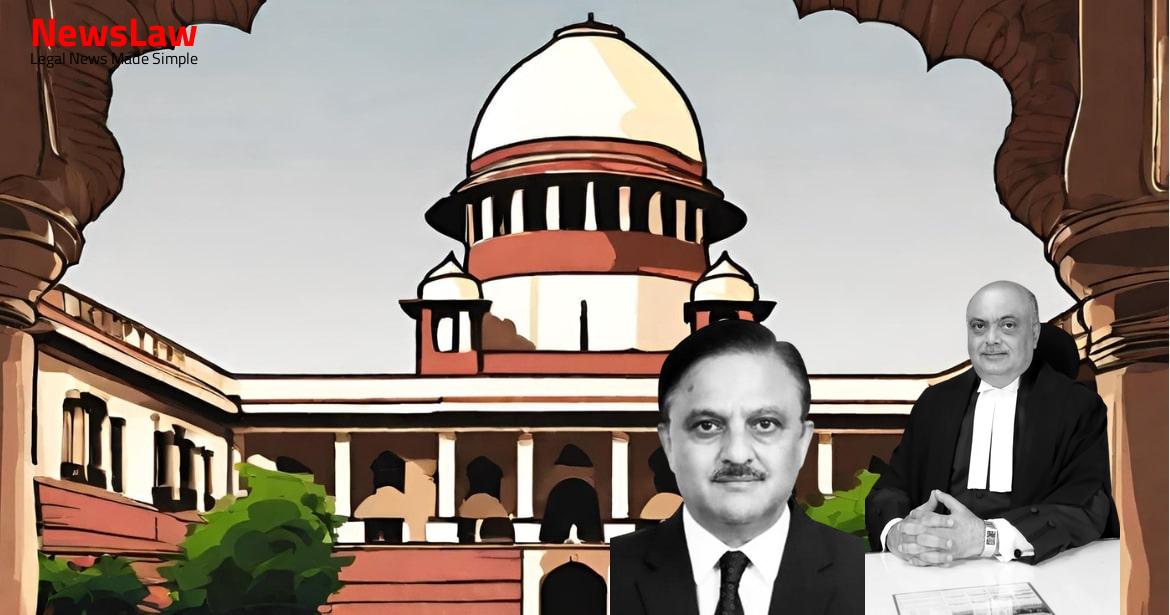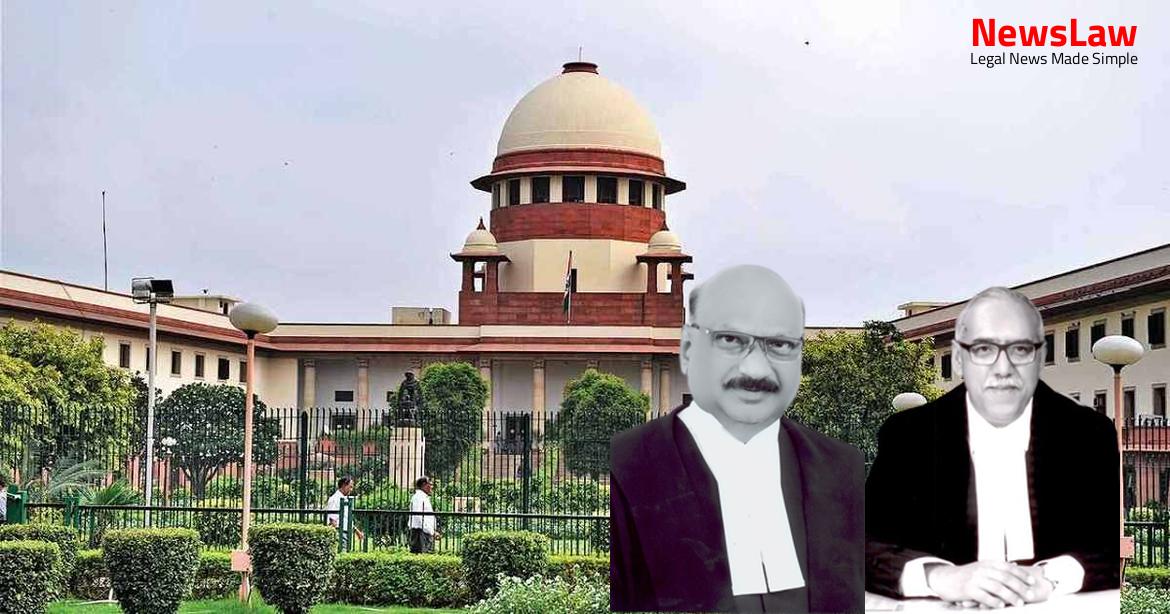In a landmark decision by the Supreme Court of India, the accused in the NDPS case have been acquitted based on key legal points and lack of evidence. The case involved accusations under the NDPS Act, where the appellant faced a 10-year sentence. However, due to legal technicalities and insufficiency of evidence, the court ruled in favor of the accused. This judgment serves as a crucial precedent in understanding the nuances of the NDPS Act and related legal implications.
Facts
- Accused no.1, Jasvinder Singh, was intercepted during the search of a consignment of pentazocine (Fortwin injections) manufactured by Ranbaxy company.
- The consignment was being transported illegally from Hajipur to Lucknow for sale as an intoxicating item.
- Accused no.1 disclosed having a valid drug license from the Office of Controller of Drugs, Bihar.
- Accused no.2, the current appellant, was involved in sending 30 cartons of Fortwin injections to accused no.1 at the request of accused no.3.
- The appellant, accused no.2, produced his drug license before the NCB officers.
- The Special Court convicted the appellant and accused nos.1 and 3 for offenses under Section 22(c) and Section 29 of the NDPS Act.
- Appellant’s statement under Section 67 of the NDPS Act revealed his involvement in running a medical shop in Patna and supplying Fortwin injections.
- Accused no.1 admitted to purchasing medicines from Patna and selling them in Lucknow, obtaining the 30 carton consignment from accused no.3, Sanjay Kumar.
- The appellant’s conviction was confirmed by the High Court in the impugned judgment.
- The appellant was sentenced to undergo rigorous imprisonment for 10 years for the offence punishable under Section 22(c) of the NDPS Act.
- In addition to imprisonment, the appellant was also directed to pay a fine of Rs. 1,00,000/- for the same offence.
- No separate punishment was imposed for the offence punishable under Section 29 of the NDPS Act.
Also Read: State of West Bengal vs. Accused: Upholding Justice for Victims
Arguments
- The charge framed against the appellant and accused no.1 was only for the offence punishable under Section 22(c) of the NDPS Act.
- No charge was framed against the appellant for the offence punishable under Section 29 of the NDPS Act.
- The High Court’s finding was that the appellant was prosecuted and convicted for selling contraband to an unauthorized person, leading to the presumption of the contraband being sold for intoxication purposes.
- Lack of evidence to show that the contraband in the consignment was purchased from the appellant.
- Reliance on the inadmissible statement of the appellant recorded under Section 67 of the NDPS Act, as ruled in Tofan Singh v. State of Tamil Nadu.
- The respondent’s counsel argued that invoices issued to the appellant for sending Fortwin injections proved that the contraband was supplied at the appellant’s instance.
- It was emphasized that evidence on record established the supply of contraband to accused no.1 at the appellant’s instance.
- Section 22 of the NDPS Act, pertaining to punishment for contravention involving psychotropic substances, was referenced.
- The respondent’s counsel highlighted the applicability of Section 29, regarding punishment for abetment and criminal conspiracy, in the case.
- The evidence of accused no.3, a defense witness, was examined to determine the involvement of the appellant in the contraband supply.
- The court emphasized the inadmissibility of the appellant’s statement under Section 67 of the NDPS Act as evidence.
- The importance of recording the statement of the transporter, a crucial witness, to establish the delivery of the contraband was underscored.
Also Read: Harilal vs. State of India: Acquittal of Accused No.3
Analysis
- No evidence of conspiracy against the appellant.
- No investigation carried out against Arun Singh.
- Charge framed against accused no.1 and accused no.2 for transporting Fortwin without a valid license.
- Accused no.1 stated he purchased Fortwin injections from the appellant and Arun Singh.
- No evidence that the contraband was delivered by the appellant to accused no.1 for transportation.
- Adverse inference to be drawn against the prosecution for lack of evidence.
- Offences under Sections 22(c) and 29 of the NDPS Act not established beyond a reasonable doubt against the appellant.
- No recovery of incriminating material from the appellant.
- The accused has been charged under Section 22(c) of the N.D.P.S. Act and is to be tried for the said offence.
- There is no mention in the charge of any alleged offence under Section 29 of the NDPS Act.
- The accused is directed to stand trial before the judge who issued the charge.
- Non-framing of charge under Section 29 of the NDPS Act did not result in failure of justice.
- No legal evidence on record shows that the contraband was supplied to accused no.1 by the appellant.
- Lack of evidence of the appellant’s participation in any conspiracy.
Also Read: Ahmad Palace Bail Case: Supreme Court Ruling
Decision
- The conviction of the appellant cannot be sustained.
- The impugned judgments are set aside.
- The appellant is acquitted of all charges in Case No C2 A 01/2013.
- The appeal is allowed.
- The bail bonds of the appellant are cancelled as he is on bail.
Case Title: AJAY KUMAR GUPTA Vs. UNION OF INDIA (2024 INSC 619)
Case Number: Crl.A. No.-000878-000878 – 2019



